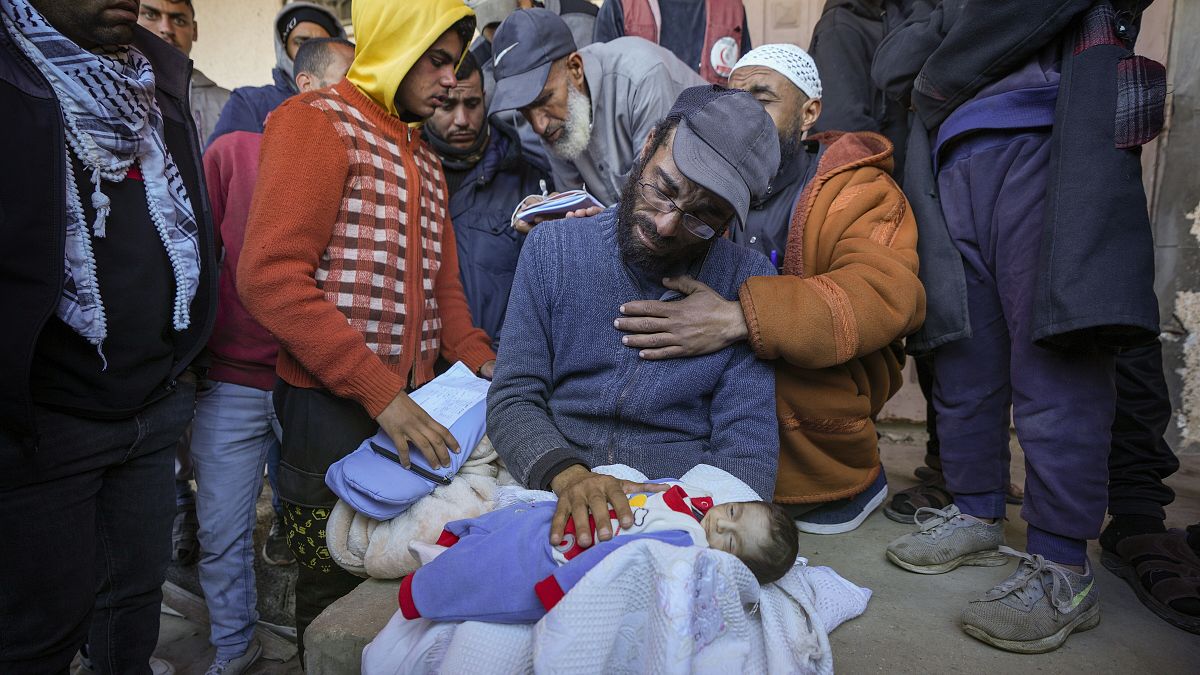Slovakia profiting from war with Russian gas transit gambit, Kyiv charges
Slovakian Prime Minister Robert Fico's fears for energy security are unfounded, senior Ukrainian official tells POLITICO.
KYIV — A growing diplomatic spat between Slovakia and Ukraine is more about making money off cheap energy than anything else, a senior Ukrainian official told POLITICO, as Kremlin-friendly EU leaders try to broker a deal to keep Russian fuel flowing across the continent.
Kyiv on Thursday ruled out continuing to allow Moscow to ship supplies of natural gas through its network of pipelines to countries like Slovakia and Hungary after a long-term transit agreement with Russian state energy giant Gazprom expires at the end of the year.
However, according to a Ukrainian official close to President Volodymyr Zelenskyy, Slovakia — which is leading the charge to find a workaround — earns around $500 million a year by dealing in Russian gas, while opposing Ukraine’s foreign policy goals.
“We constantly ask for sanctions against the Russian nuclear industry,” the official said, granted anonymity to speak frankly about the sensitive row. Slovakian Prime Minister Robert “Fico is among those who block those sanctions … and is one of the key blockers of [Ukraine’s] bid to join NATO, too.”
Fico, who along with Hungarian Prime Minister Viktor Orbán has championed closer relations with Moscow since the start of Russian President Vladimir Putin’s all-out invasion of Ukraine, on Thursday accused Zelenskyy of offering him “€500 million of Russian assets” to support Kyiv’s application to join the military alliance. “Of course, I said ‘never’,” the populist prime minister said he responded.
Hitting back at the claims, the Ukrainian official said Zelenskyy’s words were taken out of context and were making the case for Slovakia to find alternative sources of gas, as other EU countries have.
“That is when Zelenskyy offered him to come to an agreement with our partners and said we will compensate Fico for his losses, and in return, he will help us with our national security, and support us and NATO. He said ‘no’,” the Ukrainian official said.
According to the Ukrainian official, the Slovakian prime minister rejected suggestions of transiting any gas other than Russian because the earnings are apparently a national security priority.
“You see, it’s not about security at all for Fico,” the official said.
Fico asked why should Slovakia lose money because Ukraine is at war, the official added.
“The president got emotional because it is immoral thing to say. And he said that Ukraine is losing people because of Russia, and Fico wants to earn money from a flat rate and help Russia finance the war,” the official said.
The agreement that allows Russia’s Gazprom to pump supplies via Ukraine will expire on Jan. 1, 2025. Speaking in an interview with POLITICO, the EU’s new energy commissioner, Dan Jørgensen, said that the bloc is “preparing for” that situation and that the looming end of Russian pipeline gas “is not something that comes as a surprise.”
However, a group of major Central European energy firms this week wrote to European Commission President Ursula von der Leyen urging an extension, while Fico and Orbán have been holding meetings with foreign counterparts to try to secure continued access to supplies.
Orbán said Saturday that Budapest is trying to negotiate a situation whereby Russian gas would be rebranded as Hungarian before it crosses the border into Ukraine, paralleling a similar loophole it uses to maintain access to cheap Russian oil.
Zelenskyy, however, has been dismissive of the requests to renew the deal when Russia is waging its war of aggression on his country. “It’s a bit shameful to talk about money because we are losing people,” he said at a meeting in Brussels on Thursday.
Putin has also said he expects the agreement to come to an end. That comes as a blow for the country’s economy, with analysts estimating Gazprom stands to lose as much as $6.5 billion in revenue — cash ultimately used by the Kremlin to fund its invasion of Ukraine.
Veronika Melkozerova reported from Kyiv. Gabriel Gavin reported from London.
What's Your Reaction?


















































